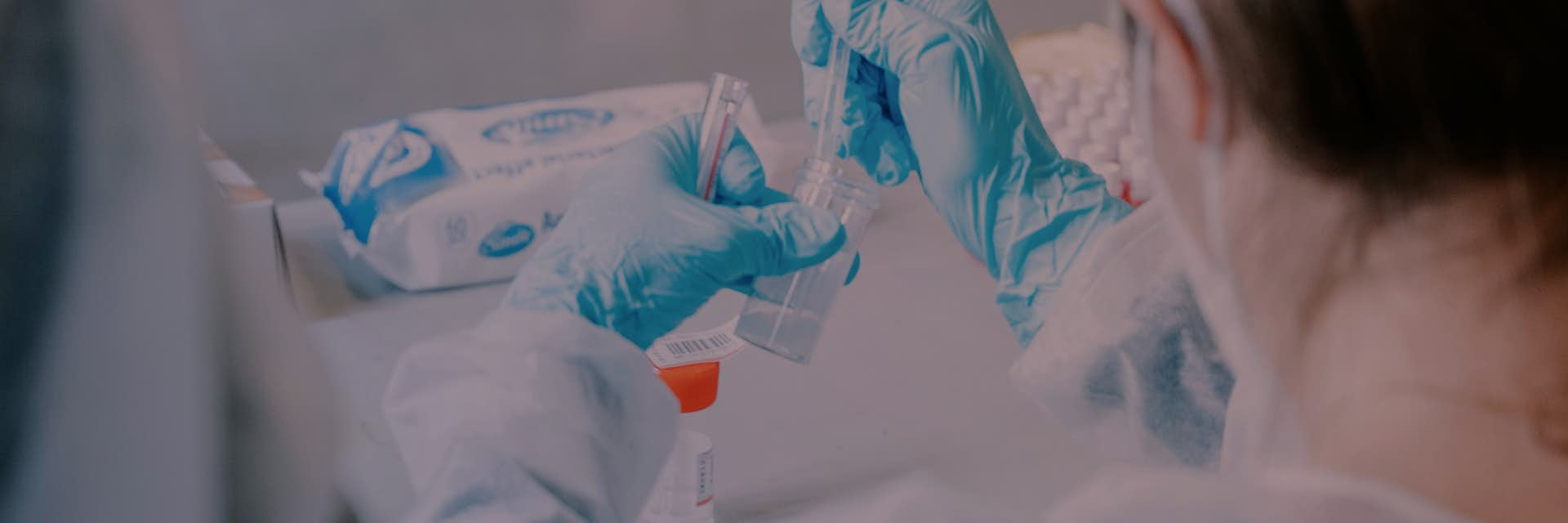
Study pathology abroad
Find programs that match your eligibility and aspirations then apply with reduced application fees, a free assessment and access to a dedicated advisor.
Find your perfect pathology programs abroad
Find pathology programs you love that match your needs & aspirations, where you stand a high chance of acceptance.
Pathology degrees abroad
Pathology is a branch of science that studies the causes and consequences of disease, illness, and injury. Pathologists analyze biological samples and carry out autopsies to search for medical conditions, offer diagnoses, and determine the causes of deaths.
As a pathology student, you’ll learn how to perform a range of diagnostic tests on cells and tissue samples. You’ll be taught how to interpret these medical results and identify any abnormalities. You’ll also conduct research into medicines and drugs to evaluate their safety and effectiveness.
By earning your degree abroad, you’ll appreciate how crucial pathological studies are to global health and wellbeing. You’ll see how pathological practices and processes differ from country to country, learn from international leaders, and use state-of-the-art research facilities. Alongside this enormous professional growth, you’ll broaden your cultural horizons, boost your confidence, and form lasting friendships.

Why use Studee?
-
Find your ideal program
Filter 10,000s of programs down to a shortlist perfect for you, where you have a strong chance of getting admitted
-
Apply online via Studee
Complete our application form and enjoy reduced application fees and access to unique Studee scholarships for many universities
-
We assess within 48hrs
We complete an 85-point assessment within 2 business days, help you with improvements then submit to your university
-
University offer in 2-4 weeks
We chase the university for your admission decision and keep you updated. We all celebrate your admission!
All our services are 100% free as we're funded by universities. You pay deposits and tuition fees directly to the university.

Pathology program structure
Pathology degrees are only offered at the postgraduate level. To enroll in these programs, you must have a strong bachelor’s degree in the medical field, and complete the necessary prerequisite courses. Most aspiring pathologists study a four or five year-undergraduate degree in medicine, followed by a two-year foundation course in pathology.
Once you’ve been accepted onto an MSc program, you’ll develop your theoretical and practical knowledge in pathology over an average of two years.
After finishing your MSc, you can begin working towards a PhD. This research-based degree is the highest formal qualification you can achieve. It takes anywhere between four and seven years to complete.
Pathology programs are usually taught through a combination of lectures, interactive discussions, group seminars, and practical laboratories.
You’ll spend a significant amount of time working on your independent research dissertation which will form a large part of your overall grade. You’ll also encounter written exams, assignments, multiple-choice and short-answer tests, presentations, and practical assessments.
Most students choose to specialize in a particular strand of pathology, so no two programs will look exactly the same. However, universities around the world typically deliver core modules in the following areas:
- Introductory pathology
- Applied principles of pathology
- Mechanisms of disease
- Genetics
- Immunology
- Virology and medical microbiology
- Professional and research skills in pathology
- Autopsies
Best countries to study pathology
Pathology study abroad programs
Pathology undergraduate programs
Bachelor's in pathology
-
Applied Biomedical Science: Pathology (Coleraine Campus) - BSc (Hons) Ulster University, UK
- Program type
- Bachelor's
- Duration
- 4 years
- Annual tuition fee
-
15,840 GBP
Fees are displayed in the university's local currency
- Start date
- September
-

Pathology - BSc (Hons) Western University, Canada
- Program type
- Bachelor's
- Duration
- 4 years
- Annual tuition fee
-
41,633 CAD
Fees are displayed in the university's local currency
- Start date
- September
Pathology graduate programs
Master's in pathology
-

Laboratory Medicine and Pathology - MSc University of Alberta, Canada
- Program type
- Master's
- Duration
- 2 years
- Annual tuition fee
-
11,410 CAD
Fees are displayed in the university's local currency
- Start date
- January, September
-

Biochemistry : Pathology and Experimental Medicine - MSc University of Ottawa, Canada
- Program type
- Master's
- Duration
- 2 years
- Annual tuition fee
-
19,440 CAD
Fees are displayed in the university's local currency
- Start date
- January, September
-

Master of Science in Pathology and Laboratory Medicine (MSc) - MSc The University of British Columbia, Canada
- Program type
- Master's
- Duration
- 2 years
- Annual tuition fee
-
9,500 CAD
Fees are displayed in the university's local currency
- Start date
- September
-

Pathology - MSc Dalhousie University, Canada
- Program type
- Master's
- Duration
- 2 years
- Annual tuition fee
-
18,546 CAD
Fees are displayed in the university's local currency
- Start date
- January, May, September
-

Pathology - MSc McGill University, Canada
- Program type
- Master's
- Duration
- 2 years
- Annual tuition fee
-
19,728 CAD
Fees are displayed in the university's local currency
- Start date
- January, September
Doctorate in pathology
-

Pathology and Laboratory Medicine - PhD University of Manitoba, Canada
- Program type
- Doctorate
- Duration
- 5 years
- Annual tuition fee
-
8,859 CAD
Fees are displayed in the university's local currency
- Start date
- September
Future pathology careers
A degree in pathology will open up many career doors for you. You’ll be prepared to work across several roles and settings, including:
- Clinical pathologist
- Forensic pathologist
- Molecular pathologist
- Immunopathologist
- Genetic pathologist
- Biochemist
- Clinical research associate
- Lecturer in pathology
Undertaking some work experience and shadowing in clinical and research settings can help take your employment to the next level. The commitment you demonstrate and the professional connections you make could eventually lead to a job offer.









